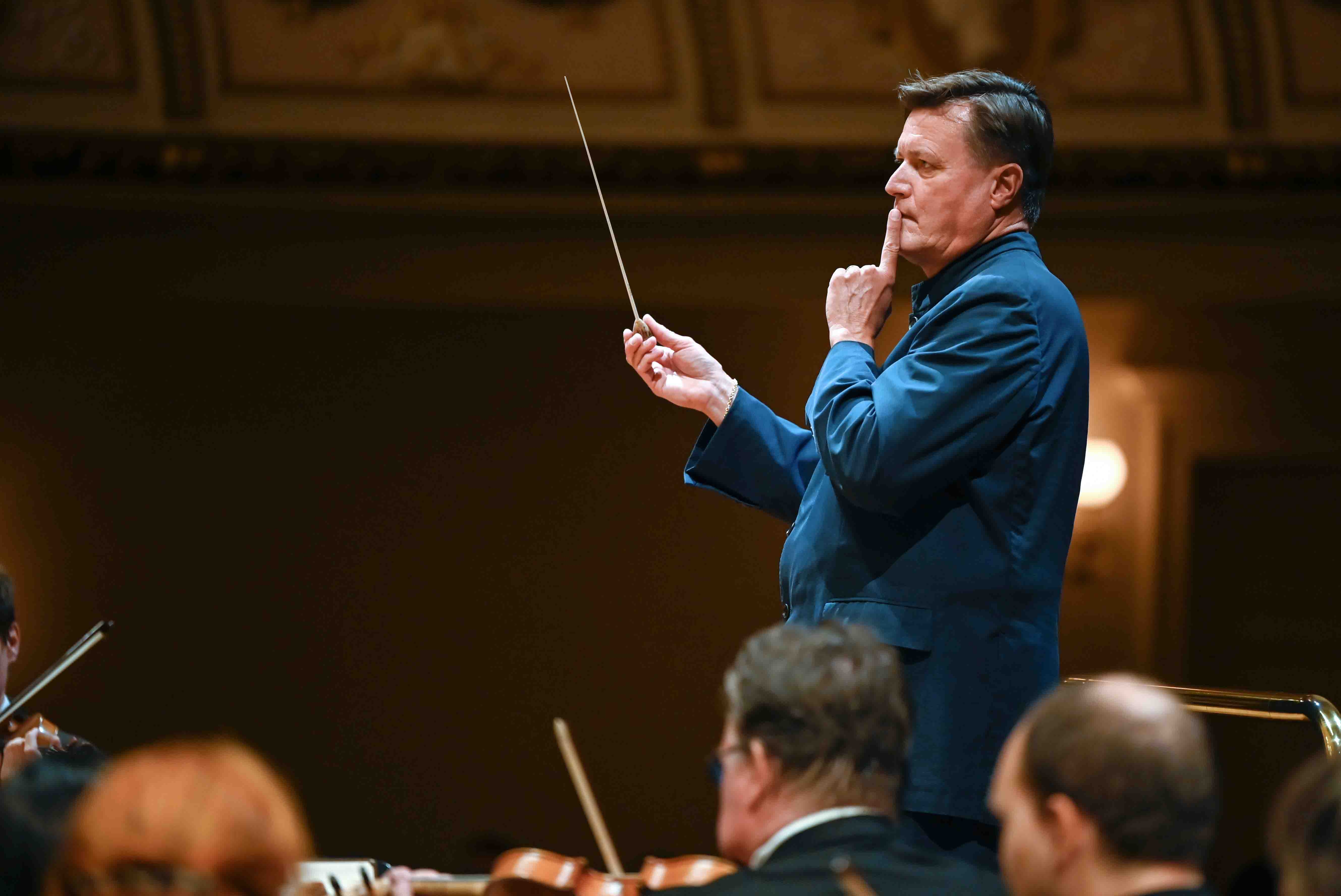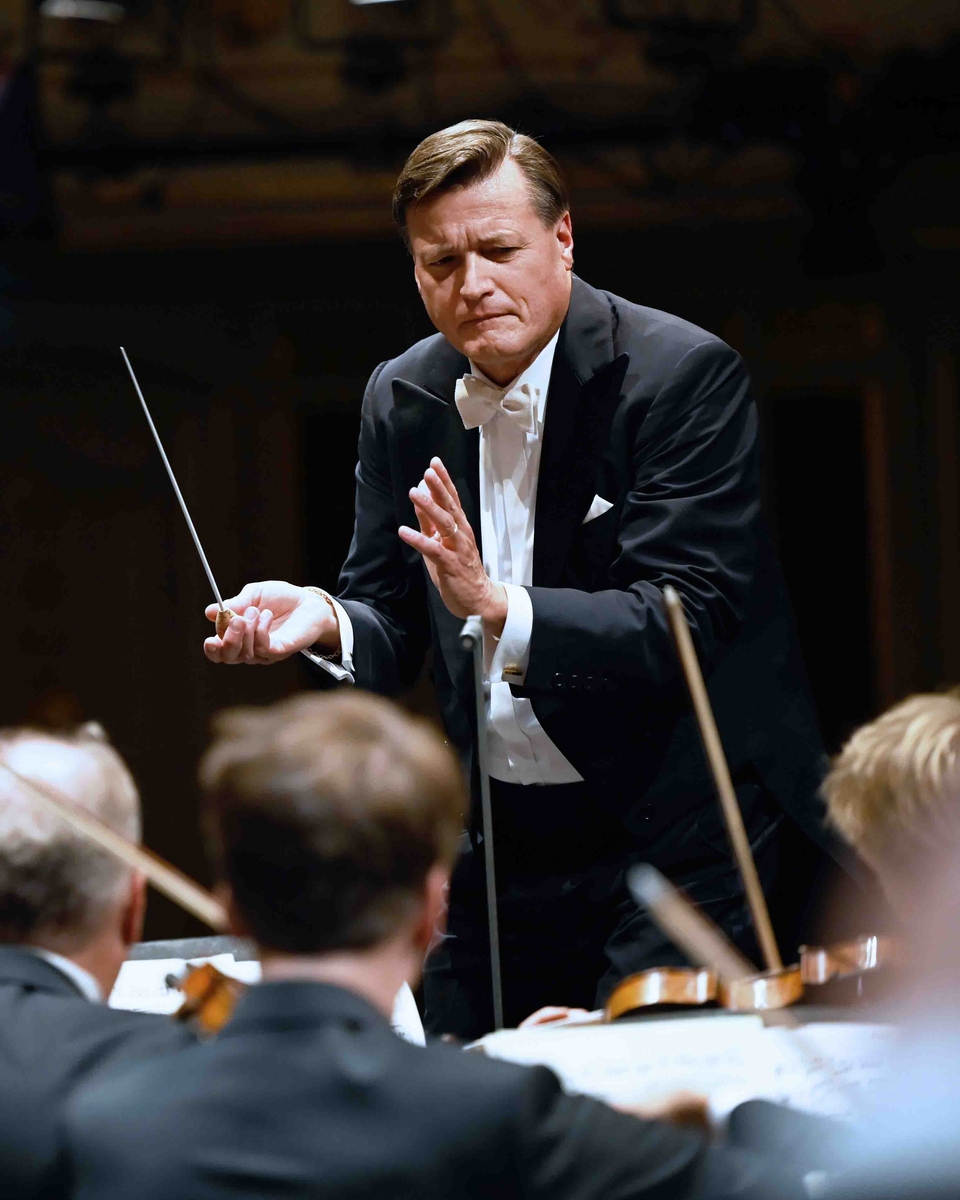Never say maestro to him
Feature |

First of all: never say maestro to him. I advise all singers who are working with Christian Thielemann for the first time to do so right from the start. Because he absolutely does not see himself as a "maestro", he prefers "Kapellmeister". For Thielemann, this encompasses numerous virtues that have to do with professionalism, craftsmanship and great seriousness. This is evident in many aspects of his work.
Perfect preparation and meticulous knowledge
I don't know many conductors who have already studied a score as well as he has at the start of rehearsals. In his case, the famous saying is true: it's better to have the score in your head than your head in the score. He literally knows the pieces by heart. Not photographically by heart, as Daniel Barenboim, for example, is said to do, but in an enormous depth of detail. In the middle of a tutti passage during rehearsals, for example, he can draw the attention of a third bassoon to a careless mistake in a musically not even exposed passage. How does he do that? He just knows!
For me, the Tristan und Isolde premiere here in 2003 is a good example of this meticulous knowledge. The score was in front of him, but he didn't turn the page once during the course of the long evening - and it was still open to page one at the final chord.
Efficiency during orchestra rehearsals
When the orchestral rehearsals begin, he is as efficient as possible. He often lets entire acts play through once and does not interrupt, but always calls out corrections and comments in between. Only then do they work chronologically on individual passages. This usually involves key passages, difficult transitions and technically tricky moments, rather than a complete play-through.
What he doesn't do is give something like a general speech at the beginning of the rehearsal in which he explains the work and his view of it. He is absolutely of the opinion that you don't need to explain Beethoven or Strauss to an opera house or orchestra with an international reputation.
"Christian Thielemann attaches great importance to eye contact; he would prefer everyone, especially the singers, to look at him the whole time."
Direct and factual: Thielemann's way of working
His comments and corrections to individual passages are not interspersed with poetic images, but are very straightforward and direct, factual and dry in a positive sense. Nothing is described in a flowery way, but in a staccato passage, for example, it is about how short or long the notes are, what weight they are given, but not about a poetic description of the mood.
The mysterious sound of Thielemann
Despite this sober approach, working with Thielemann creates an incredibly atmospheric sound that captivates everyone. It's almost transcendent, and even after more than 20 years of working with him, I still don't know exactly how he achieves this.
His collaboration with the musicians of the Vienna State Opera works perfectly because they are able to realize his ideas - and he in turn knows what great tonal and technical quality he can count on.
Eye contact: An elementary component of his work

Another central aspect of his work is eye contact. Thielemann attaches great importance to everyone, especially the singers, looking at him the whole time. He also looks at everyone, literally. He has his eyes everywhere and manages to make each and every participant feel personally and constantly looked at.
This intense eye contact makes for an incredibly organic performance, which is confirmed time and again by the musicians and singers. The result is a musical uniqueness and unity that captivates both the audience and the performers.
Volume: differentiation instead of explosion
A key issue for Thielemann is volume. For him, it is not about being loud throughout the evening. He often signals "less" with his left hand to encourage the musicians to play in a differentiated manner. Even when playing fortissimo, he makes sure that it is only used when it is really necessary.
His motto is: "You shouldn't actually have more than one passage per act where you really let it rip". And when he does let it rip, it is done in an incredibly effective way that culminates the tension of an entire act.